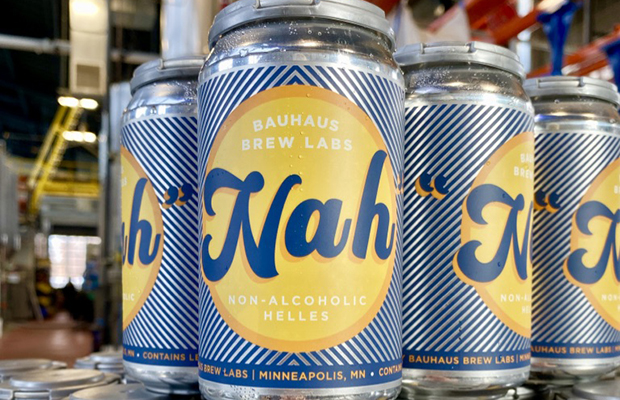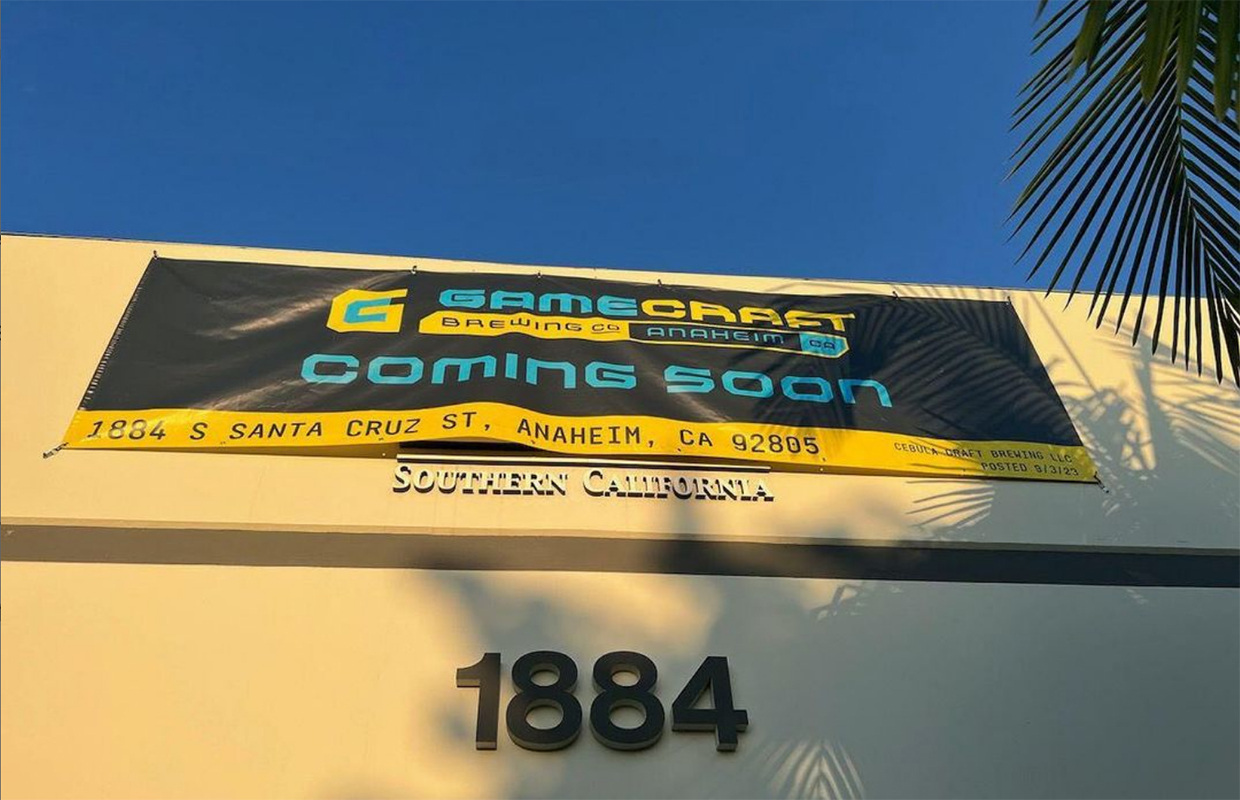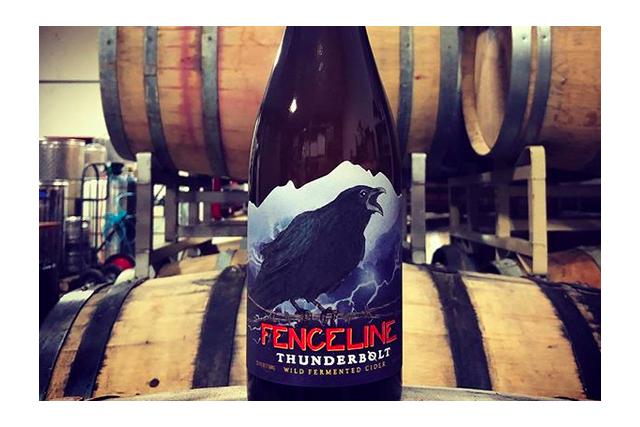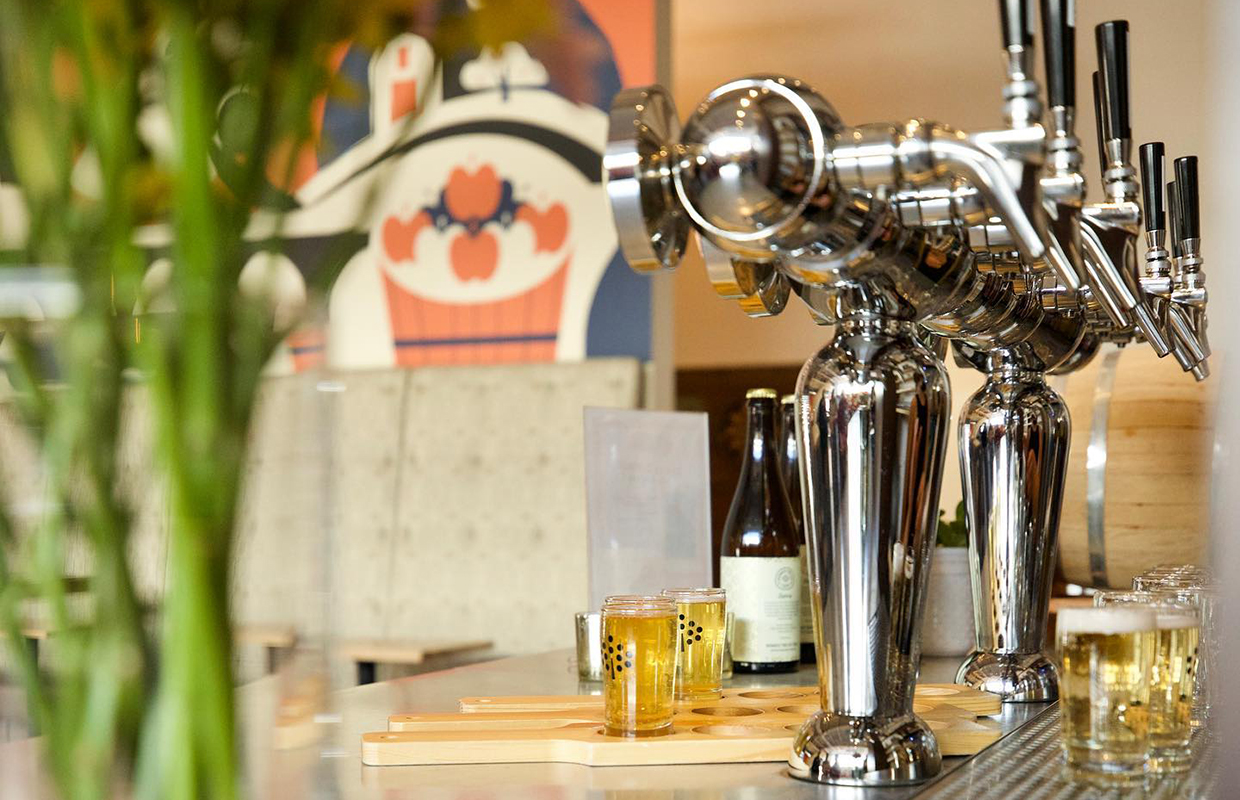
There’s a reason why Bauhaus Brew Labs got into the non-alcoholic beer space so quickly. It wasn’t due to shrewd forecasting and thinking ahead back in 2018 that got Matt Schwandt to place his Minnesota craft brewery at the forefront of an emerging market opportunity. Instead, it was health and happenstance.
In the fall of 2017, the president and co-founder of the Minneapolis brand said he had a medical issue that landed him in the hospital for about three days.
“After that, I was basically forced to abandon alcohol,” he said. “I haven’t had a drink in six years.”
Schwandt was approached by Ben Jordan, CEO of ABV Technologies, to gauge interest in using a new dealcoholization process that extracts ethanol from beer in a way that leaves the overall flavor profile mostly intact.
“I was like, man, what are the odds, this is amazing,” Schwandt recalled. “This is a crazy, cool opportunity for us. And it was a way for me to get energized again about a new segment of craft beverage.
“So we jumped on it and were enthusiastic about it, regardless of whether it had legs in the market.”
That made Bauhaus the first Minnesota brewery in almost 100 years to produce and sell an NA beer with a Helles that eventually became a brand called “Nah.” Now, nearly six years later, Schwandt says that the NA line represents about 6% of the company’s distributed sales, which is up from about 1% just a few years ago.
But there’s a reason you don’t see many small craft breweries creating their own NA line of beers. It can be a capital-heavy expenditure that requires even more equipment than a typical brewery.
“We really liked the flavor profile that we get from using ABV’s machine,” Schwandt said “Because of our proximity to their facility (in St. Paul, Minnesota), we haven’t had to invest in the equipment.
“If that was the only way for us to do it — investing in equipment — we wouldn’t be doing it.”
But it could be a growing segment for any number of craft breweries,” he added. It just depends on the model.
“It depends on their equipment capabilities,” he said. “We’re lucky that we have ABV right next door and we’re able to ship beer to their facility for dealcoholization. The other option is that you invest in one of ABV’s machines, which is what I think about a dozen breweries around the country have done, but it’s a really high capital cost.
“A lot of that tech is pretty expensive and cost-prohibitive. Some breweries are doing the arrested fermentation, or using some sort of genetically modified yeast that doesn’t produce alcohol.”
Bauhaus will brew a full-strength beer and ferment it to terminal, then send it to ABV for processing for a fee.
“They remove the alcohol, it comes back to us, and we package it,” Schwandt said. “Using ABV’s service essentially doubles the cost of the beer. So our margins on it are very thin.
“But we still think it’s a worthwhile endeavor because it is a growing category for us.”
Schwandt has identified some new suppliers through this endeavor, but a lot of them are the same suppliers that are supplying the brewery with its beer ingredients and raw materials.
“We’re always very mindful of costs and trying to do things as efficiently as possible but you know, the bottom line is always does it taste great,” he said of the end product.
The line’s top seller is a Helles, followed by a Pink Guava Sour. A handful of other brands have been released through the Nah line, including a Hefeweizen and a Hazy Pale Ale.
“My goal is to have the Hazy Pale Ale, the Pink Guava Sour, and the Helles available as year-round options,” he said. “The one(style) that’s been the most challenging for us is coming up with something dark that doesn’t taste like an ashtray once the alcohol is removed.
“We’ve done some pretty considerable R&D on everything from an NA Schwarzbier to an NA Stout and NA Porter. For some reason that style is really tricky for us to get a great profile. And so that’s one category that we just haven’t been able to do yet.”
Bauhaus partially works through its beer distributor, Artistisan, who also distributes Surly, Bent Paddle, and Toppling Goliath. But, because it’s not an alcoholic product they are also able to sell and distribute it on their own through self-distribution.
Draft sales of the Nah beer are on the uptick, which is encouraging to see, Schwandt said.
“It used to be where accounts like bars and restaurants were only interested in cans because they didn’t want to take one of their tap lines away,” he said. “The fact that some accounts are switching those lines over to NA beers is kind of a statement about the traction that that segment is gaining.”
With so many established NA options, along with a segment leader like Athletic Brewing, Schwandt said being able to capitalize on being a local option is key.
“I think that we got in early in this segment. And we established a brand that people are pretty familiar with,” he said. “It’s pretty well respected. People love the taste. And then also there’s just an increase in consumption of NA beers and of brands entering the market.”
But NA beer was just the start for Bauhaus.
“It’s been great brand building for us to show people like hey, we’re not just a craft brewery, we’ve got craft beer, hard seltzer, NA beer, and now cannabis drinks,” he explained.
In the summer of 2022, Minnesota legalized cannabis drinks and many breweries and cideries have capitalized on it, with Bauhaus utilizing sales strategies to help increase NA sales with the new THC-infused line of sparkling water, Tetra.
“One of our sales team’s goals is when they place a cannabis beverage to always make sure that we’re also trying to get a craft beer or seltzer presence in that same location,” he said. “We launched Tetra in mid-September last year, and it’s been steadily growing. A lot of the craft breweries are producing around here, but ours are some of the top sellers and we’ve got a fruit-juice version of it dropping this September that I think is going to do really well for us.
“Just seeing how customers are familiar with our brand, they know our brand, they trust us with the cannabis beverages to produce a great product. And that’s only growing right now. I’m not sure about the overall longevity of those drinks but that’s why we’re also looking into just more non-traditional NA beverages to grow that side of our business.
Over the next couple of years, Schwandt added that Bauhaus is going to be leaning a lot heavier into NA craft beverages in general.
“Not necessarily in a beer, but beer-adjacent beverages like flavored hop waters, and maybe some wellness-oriented fruit beverages,” he said.






Be the first to comment